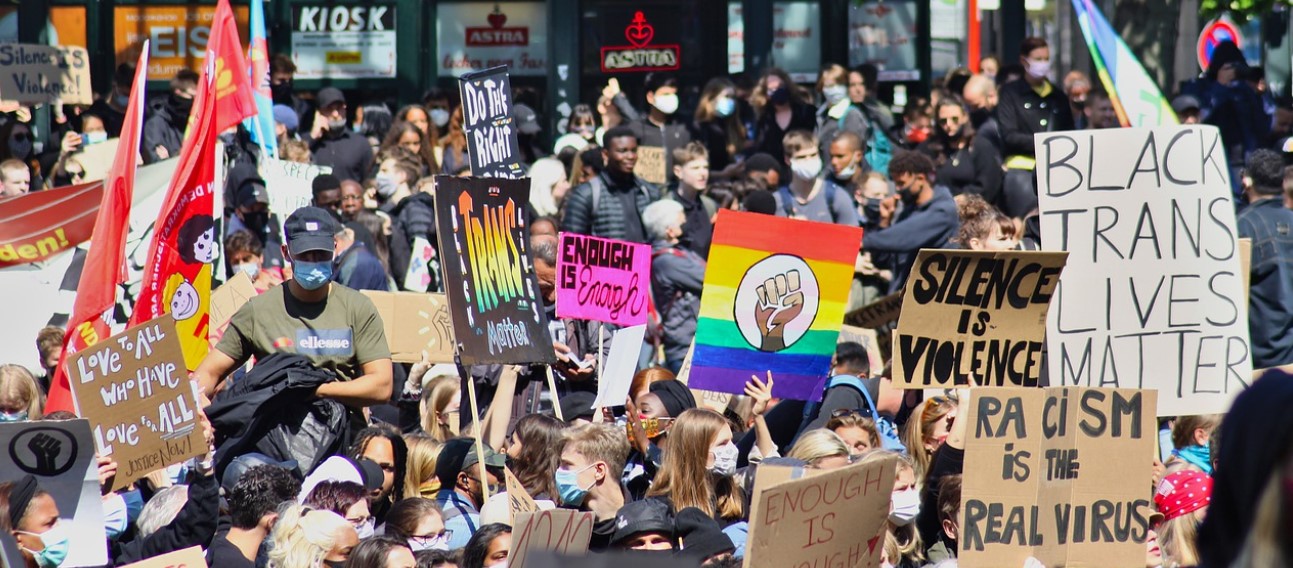The state’s Interior Minister Lorenz Caffier (CDU) told the dpa news agency on Wednesday that he now sees as a reversal of the burden of proof, for example in the case of racism allegations against officials. “We cannot accept that,” emphasized the CDU politician. Police officers should not run the risk of suffering legal disadvantages during operations in Berlin.
The state anti-discrimination law passed by Red-Red-Green coalition in Berlin is designed to protect citizens and associations from discrimination, for example when dealing with authorities, checking tickets or dealing with the police. If a court finds discrimination, the person concerned receives compensation from the State of Berlin. The law is the first of its kind in Germany. It provides for a so-called burden of proof relief, according to which it is sufficient if a person concerned can claim any incident was “mostly likely” credible.
Critics, on the other hand, speak of a reversal of the burden of proof. Federal Minister of the Interior Horst Seehofer (CSU) also announced to the dpa that for the time being federal police officers will no longer be sent for deployments to Berlin. “I cannot subject my officials to this discrimination, where they must then prove that they have not discriminated.”
Several interior ministers of the federal states had already considered suspending support missions in Berlin due to the new regulations. On Wednesday, Brandenburg’s Interior Minister Michael Stübgen (CDU) criticized the move in an interview on rbb-Inforadio saying that every citizen should have the opportunity to defend themselves against illegal treatment of police officers. A reversal of the burden of proof is, however, the wrong way. He said he would not allow the legal position of police officers from Brandenburg to be undermined.
Bavaria and Baden-Württemberg had announced that they would reconsider further deployments by their officials to Berlin. Should they experience disadvantages due to the anti-discrimination law, they will no longer send support. Schleswig-Holstein and Thuringia, on the other hand, had announced that they would continue to send police officers to the capital.
Berlin’s Senator for the Interior, Andreas Geisel (SPD), repeatedly criticized the law. Claims for damages will in all cases be directed against the State of Berlin, not against individual officials, he said on Inforadio. He accused his colleague Stübgen of not having read the law, which is why he has now sent him the text. He classified the debate about the new Berlin regulation as “political folklore”.
The State Anti-Discrimination Act is also the subject of discussion at the Interior Ministers’ Conference in Erfurt, which started on Wednesday.













One comment
Berlin’s government is already one of the most far-left in Germany, and already has significant restrictions on the police in Germany’s capital. It is not surprising that some German states will not send their police to support those of the capital as long as the latter’s anti-discrimination legal regime persists. Germany police are increasingly targeted by violent leftist groups in the course of their work, and do not want to be targets of legal action for doing their jobs. The action by Mecklenburg-Vorpommern’s Interior Ministry can be seen as pre-emptive, to forestall the embarrassment of possibly having to deal with the refusal of its police officers to serve in Berlin. As noted in this article, other states will probably follow suit. This sorry situation may be headed to a resolution by Germany’s federal government, or at least its courts.
By submitting a comment you grant Free West Media a perpetual license to reproduce your words and name/web site in attribution. Inappropriate and irrelevant comments will be removed at an admin’s discretion. Your email is used for verification purposes only, it will never be shared.